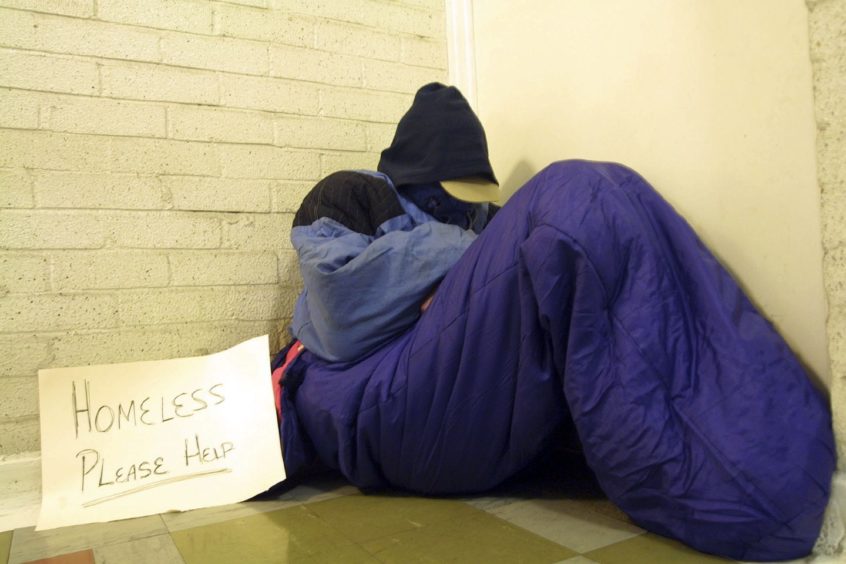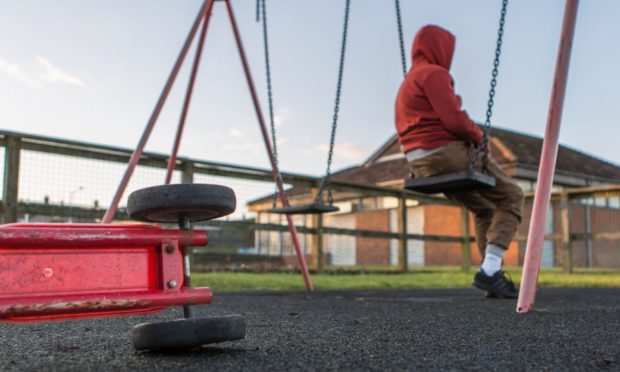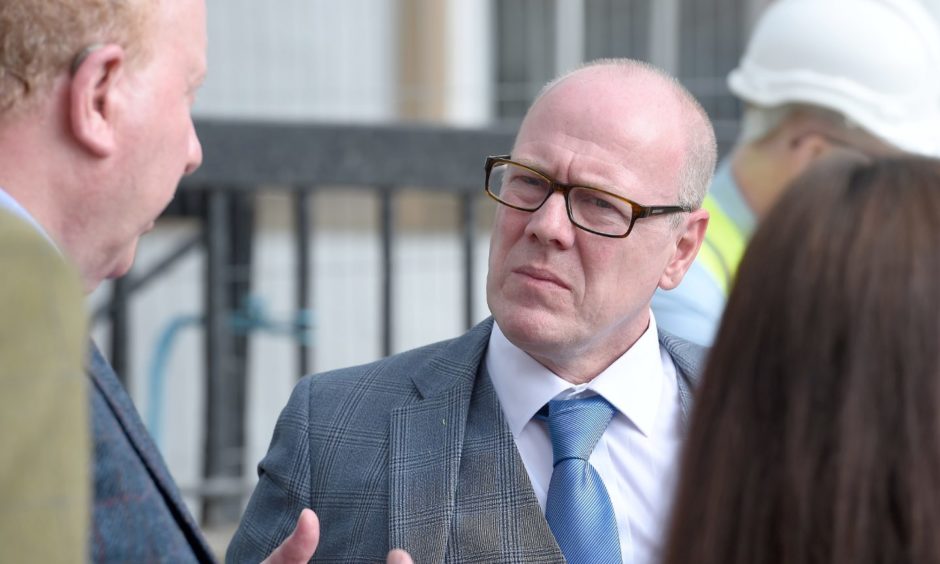More than 1,140 children in the North East, Highlands and Islands were homeless last Christmas, “heart-breaking” figures have shown.
Across Scotland, 12,467 children were part of live cases of being without a house in 2019, an increase of almost 20% on 2015.
Figures obtained by the Lib Dems show more than 25,000 adults with live homeless applications last year, with the party warning the number is likely to increase in 2020 as a result of the coronavirus pandemic.
In Aberdeen and Aberdeenshire there were 164 and 352 children without a home on Christmas day in 2019 and 570 and 827 adults, respectively.
The Western Isles recorded 143 adults and 75 children as being involved as homeless on December 25 last year, while in Orkney and Shetland there were 285 adults registered homeless and 107 children.
Highland had 1,016 homeless adults on Christmas day and 395 children, while Moray recorded 214 adults and 55 children not having a permanent home.
Modern homelessness
When talking about homelessness, images of rough sleeping are often conjured, but charity Shelter explains it is much more complex.
Living in a friend’s house, sleeping on a sofa, renting a room at a hotel, hostel or shelter are all considered forms of homelessness, they say.

The impact of homelessness on a child can be massive, in particular to their education and mental health.
‘We can do so much better than this’
Scottish Liberal Democrat housing spokesperson Paul McGarry has called for urgent action by the Scottish Government.
He said: “At this time of year most of us can rely upon a comfortable and secure roof above our heads. These statistics show thousands upon thousands are not so lucky.
“In the past four years, the number of children part of a live homeless application on
Christmas day has risen almost 20%. That’s a heart-breaking statistic.
Scotland is a wealthy and prosperous country. We can do so much better than this.”
Lib Dem housing spokesperson Paul McGarry
“Whether it’s living on the streets, sofa-surfing or shuttling between temporary
accommodation, these situations take a huge toll on people’s mental and physical health. It also exerts a huge toll on children’s education and development.
“Scotland is a wealthy and prosperous country. We can do so much better than this.
“The work that was done at the outset of the pandemic to house people was remarkable.
But it also left many people wondering why it needed this crisis for government to mount a concerted effort to stop people being left outside.
“The SNP must urgently grasp the opportunity to build more social housing and ensure
councils have resources to fix poor housing. There are thousands of neglected and vacant properties across the country which, with the right incentives, could be renovated to boost the housing stock.
“We also need to see advice services given the support and resources they need to help
people in need, not being permanently left hanging by a thread.
“With common sense policies and a needle-sharp focus, we can tackle homelessness in
2021.”
Minister hails Scotland’s ‘homelessness rights’
Housing Minister Kevin Stewart said: “We don’t want children to be experiencing homelessness at any time of the year. Scotland has some of the strongest homelessness rights in the world.
“Anyone experiencing or at risk of homelessness is entitled to help from their local authority, which includes accommodation. These rights pre-date the pandemic by years and have been a strong safety net for people experiencing homelessness.
“Our updated Ending Homelessness Together Action Plan, supported by £50m, emphasises that we are committed to ending homelessness altogether, which remains a national priority.
“The updated action plan, published jointly with Cosla in October, places greater emphasis on prevention of homelessness and accelerating rapid rehousing to prioritise settled accommodation over temporary accommodation.
“It underlines the importance of prevention, highlights measures to reduce the risk of evictions and proposes phasing out night shelters, replacing them with rapid rehousing welcome centres in Edinburgh and Glasgow.”

